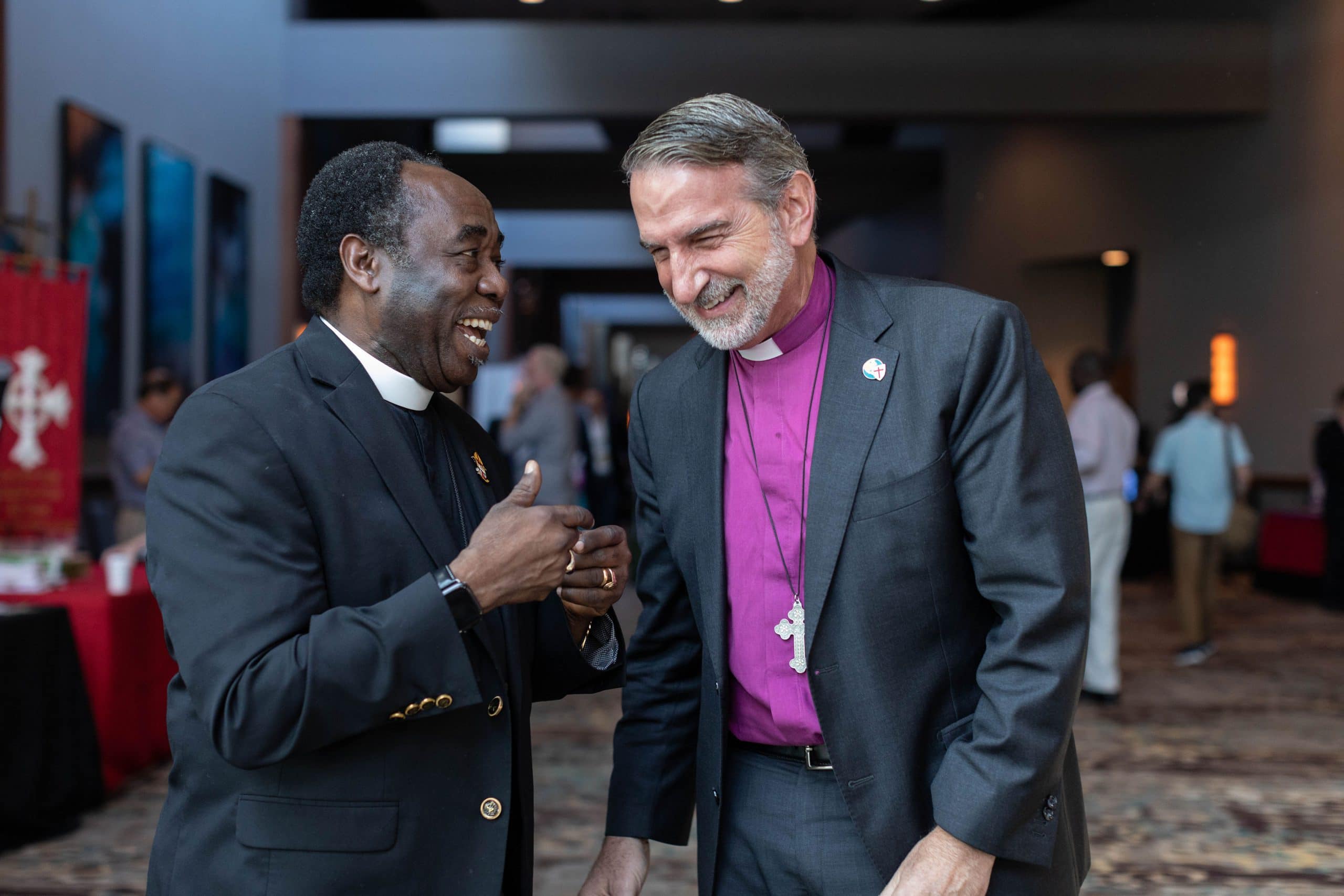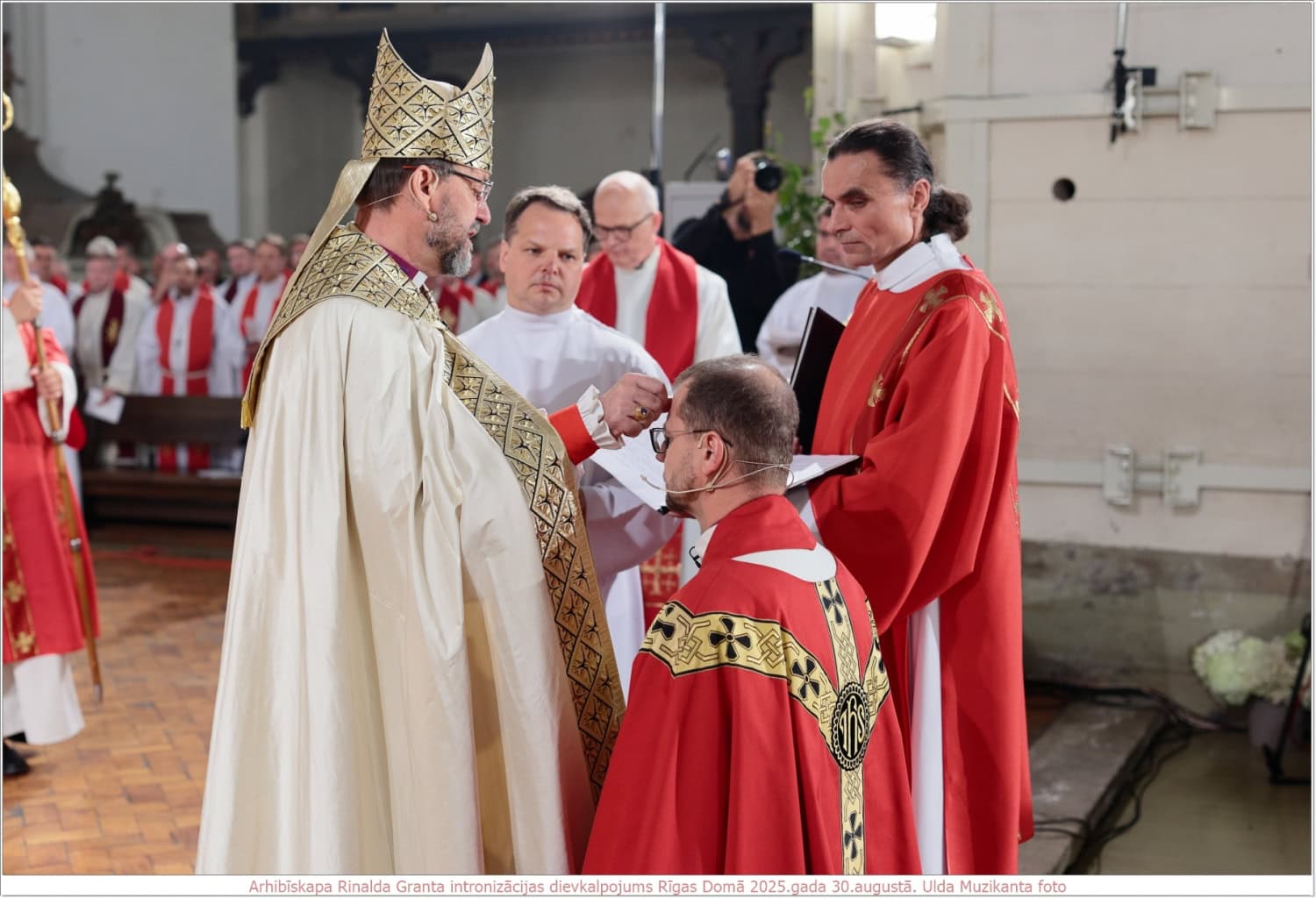A letter from Archbishop Foley Beach.
As followers of Jesus in the modern world, we can often get side-tracked by all the noise of technology, social media, politics, and busy schedules and forget what our lives are to be about in Jesus Christ. The Apostle Paul reminded his disciple, Timothy, what Jesus has commanded for us all: “The aim of our charge is love that issues from a pure heart and a good conscience and a sincere faith (1 Timothy 1:5).” True love flows from a heart that is pure, a conscience that is clear, and faith that is real.
Paul was reinforcing the teaching of Jesus: “A new commandment I give to you that you love one another as I have loved you (John 13:34,35).” The commandment to love was not new for the people of God; this is what the Law taught. What was new in the commandment was to love as Jesus loved. His love was different, so much so that He tells His followers to abide (remain) in His love and His joy would not only be in them, but their joy would be full (John 15:9-12). If we are to abide in His love and to love others as He has loved us, we must ask the question: how has He loved us? Let me share four ways.
1. HE SHARED HIMSELF. This is what the Church calls the Incarnation, God entering the human race. “The Word became flesh and made His dwelling among us. We have seen His glory, the glory of the One and Only, who came from the Father, full of grace and truth (John 1:14).” He set aside His divinity, His glory, and His majesty, and entered into our world as one of us. He became a human being. “This is how God showed His love among us: He sent His one and only Son into the world that we might live through Him (1 John 4:9).”
How do we love like Jesus loved? We share ourselves with others; we enter into their worlds. Whether this is a spouse, friend, neighbor, co-worker, child, or unbeliever, we leave the comfortableness of our world and go into theirs. We leave our glory, go humble ourselves, and enter into their world. Too many attempts to share Jesus with others are rooted in an expectation that “the other” come to us. But like Jesus, love is expressed when we leave our world, our culture, our network of friends, and enter to the others’ world and share in their lives.
2. HE SERVED OTHERS. Jesus expressed His love with action and deeds in serving. He taught, He performed miracles to help and heal people, He traveled great distances, and He even washed his disciples’ feet, the cultural role of a servant. Jesus explained his actions of love in this way: “For even the Son of Man did not come to be served, but to serve (Mark 10:45).”
This may sound strange to you, but real love is about the other person. It is not about you or me. When you love someone, it is not about the romantic feelings you might have. It is about the other. Jesus modeled His love by serving others. As followers of Jesus (disciples), we express love by serving others. Those of us in leadership roles must ask: Am I a serving leader or a self-serving leader? Jesus loved by serving.
3. HE SACRIFICED. Jesus expressed his love by His sacrifice, His death on the cross. He said, “Greater love has no one than this, that he lay down his life for his friends (John 13:15).” He sacrificed Himself so that we have forgiveness of our sins. He sacrificed Himself so that we might have a relationship with God. He sacrificed Himself when he didn’t have to. The Apostle John says it like this: “This is love: not that we loved God, but that He sent his Son as an atoning sacrifice for our sins (1 John 4:10).” The Apostle Paul explains it this way, “God demonstrates His own love for us in this: While we were yet sinners, Christ died for us (Romans 5:8).”
How do we love one another as Jesus loved us? We sacrifice for others. We pick up our cross daily and follow Jesus. That is, we die to self and live for God. We sacrifice our selfishness and self-centeredness. We live as living sacrifices (Romans 12:1).
This does not mean that we compromise what is right and what is true. We do not set aside the commandments of God in the name of love. Love is sacrificing self to follow the commandments of God. As Paul said in Galatians 2:20, “I have been crucified with Christ. It is no longer I who live but Christ who lives within me, and the life I live, I live by faith in the Son of God who loved me and gave Himself for me.”
4. HE REMAINED STEADFAST. Jesus was committed to His mission. He was resolute, dedicated, and unwavering. This is love. The writer to the Hebrews says it this way: “Let us fi x our eyes on Jesus, the author and perfecter of our faith, who for the joy set before Him endured the cross, scorning its shame, and sat down on the right hand on the throne of God. Consider Him who endured such opposition from sinful men, so that you will not grow weary and lose heart (Hebrews 12:2,3).”
Too many of us have bought into the “love is a feeling” philosophy of our culture. If I feel love, I love. If I don’t feel love, I don’t love. If I fall in love, I get married. If I fall out of love, I get divorced. The Apostle Paul contradicts this definition of love in 1 Corinthians 13 saying that love is not about how I feel: “Love is patient. Love is kind. Love is not envious. Love is not arrogant. Love is not rude. Love does not insist on its own way. Love is not irritable. Love is not resentful. Love does not rejoice in sinful behavior. Love bears all things, hopes all things, endures all things. Love never ends (1 Corinthians 13:7,8).” Jesus modeled this kind of love.
Brothers and sisters, the aim of our charge is love. As the Anglican Church in North America, we are attempting to reach North America with the transforming love of Jesus Christ. Let’s ask God to help us to do this. During the upcoming Thanksgiving and Christmas seasons, let us reach out to others with the love of Jesus Christ.
The Most Rev. Dr. Foley Beach
Archbishop and Primate







